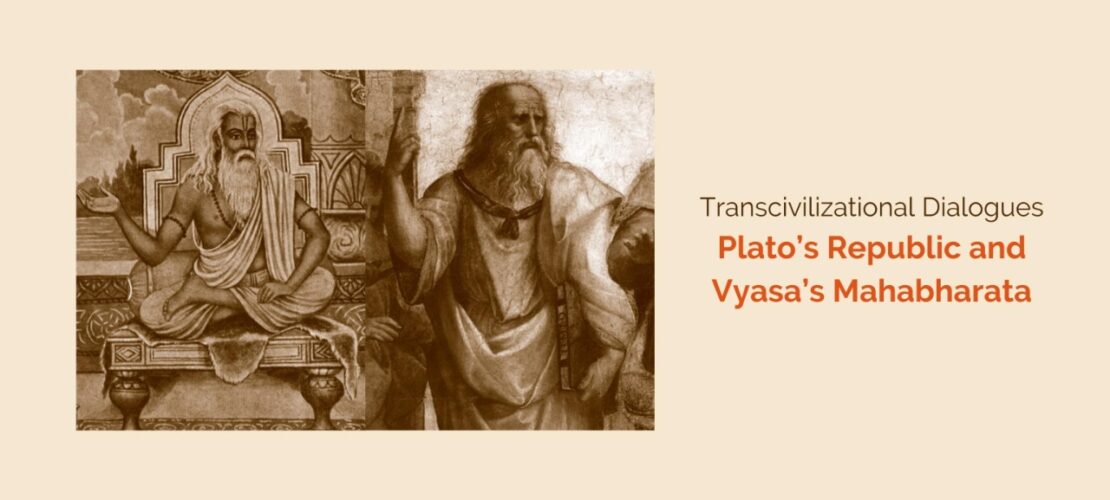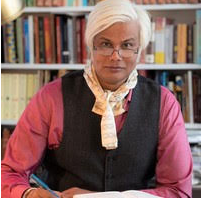
Transcivilizational Dialogues
Plato’s Republic and Vyasa’s Mahabharata
This Indica Course juxtaposes two epics, two soteriologies (accounts of salvation), and two ontologies (accounts of the nature of Being Itself).
Faculty
7 April 2022 - 14 July 2022
08:00 PM-9:00 PM IST
Every Thursday
Plato’s Republic is an epic of philosophy, supplementing Homer’s epics in the Hellenic tradition, while the Mahabharata is an epic bearing its philosophical interpretation within itself throughout, for those who have discerned its interpretative principles, but which manifest a comprehensive philosophical perspective especially in the Bhagavad Gita. Without presupposing that the accounts in these two texts, albeit from kindred cultures, should be the same, this Indica Course seeks to bring them, and the experiences of divinity that inform them, into a dialogue.
Guided by the question ‘What is justice?’ Plato, through his dramatic protagonist, his teacher Socrates, establishes that it is to be found in the well-ordered soul, but that in order to discern the order of the soul, one must look to the state, in which one finds this order writ large. Socrates soon finds that the state, and hence the soul, finds itself ineluctably at war, and traces this struggle, within and without, throughout the text, which reaches its climax on a battlefield, with a vision of the souls of every kind of creature facing their ultimate choice. The Mahabharata, too, concerns a state at war and the war within the soul, as seen from many sides and in countless forms. In its climax, also on a battlefield, Arjuna, called by duty to destroy those who are as close to him as his very soul, appeals to his God to save him with an account of dharma, of the nature and ground of right action in the world, seeking as well that knowledge which alone may guide him in the most fateful choice of his life.
This Indica Course will have three distinct sections covering the following:
Republic I
Republic II
Republic III
Republic IV
Republic V
Republic VI
Republic VII
Republic VIII
Republic IX
Republic X
Bhagavadgītā 1
Bhagavadgītā 2


